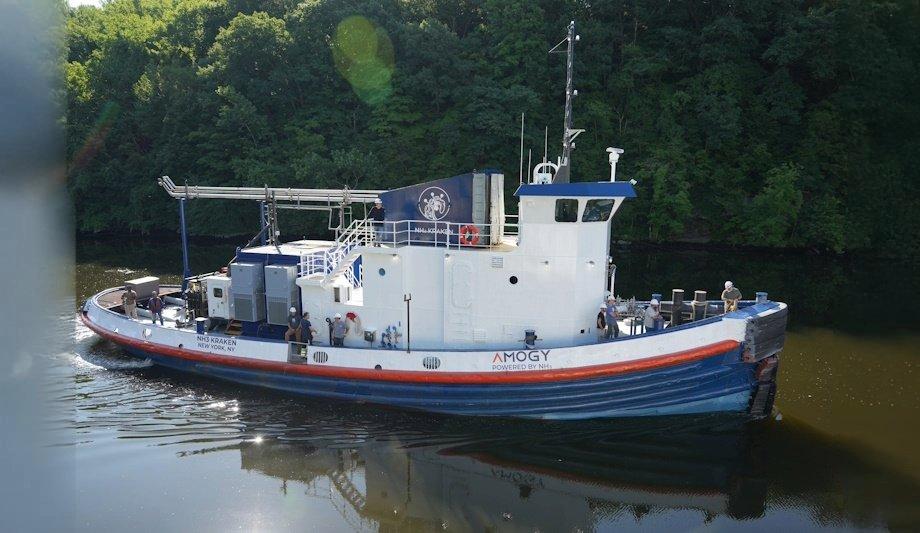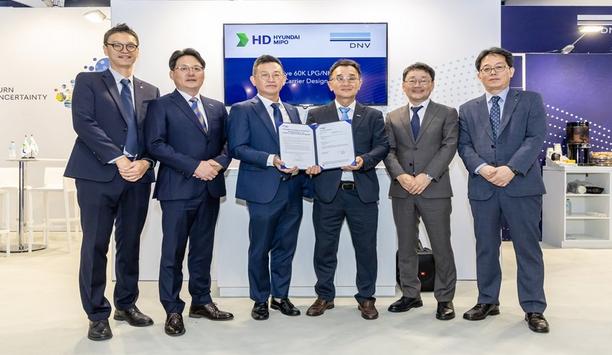Amogy, a provider of mature, scalable, and efficient ammonia-to-power solutions, announced that the world’s first carbon-free, ammonia-powered maritime vessel successfully completed its maiden voyage.
The NH3 Kraken, a tugboat originally constructed in 1957 and retrofitted with Amogy’s ammonia-to-electrical power system, sailed on a tributary of the Hudson River, upstream from New York City.
Net-zero emissions by 2050
A significant step towards reducing global carbon emissions and moving the maritime industry closer to IMO
This demonstration is a significant step towards reducing global carbon emissions and moving the maritime industry closer to the International Maritime Organisation's (IMO) target of net-zero emissions by 2050. It proves both the viability of Amogy’s technology and the potential of ammonia as a carbon-free maritime fuel.
“Governments across the globe and industry organisations like the IMO have set aggressive goals to reduce global carbon emissions," said Seonghoon Woo, CEO and co-founder of Amogy.
Ammonia-powered vessel
Woo added: "These goals seem daunting, but they’re necessary – and our successful demonstration of the world’s first carbon-free, ammonia-powered vessel proves that they’re achievable.”
“By demonstrating our technology on the water for the first time, we’ve gained invaluable knowledge that will help us move quickly to commercialisation and real-world applications. The opportunity to decarbonise the maritime industry is within reach, and for Amogy, it’s just the beginning.”
Retrofit projects and newbuilds
The company is working on contracts signed and in progress with organisations like Terox and others
Successfully sailing the NH3 Kraken is the largest and most significant application of Amogy’s technology to date, following successful demonstrations of an aerial drone, commercial farm tractor, and semi-truck.
Amogy will apply knowledge gained from this demonstration to real-world applications of its technology, including both retrofit projects and newbuilds. The company is already working on contracts signed and in progress with organisations such as Hanwha Ocean, Terox, and others.
Zero carbon emissions
Amogy’s patented ammonia-to-electrical power system splits, or “cracks,” liquid ammonia into its base elements of hydrogen and nitrogen. The hydrogen is then funneled into a fuel cell, generating high-performance power with zero carbon emissions.
This technology offers a sustainable, clean energy solution, tailored for hard-to-abate sectors like maritime shipping, as well as stationary power generation applications. During this demonstration, the NH3 Kraken was fueled with green ammonia, produced entirely with renewable energy, further reducing its carbon footprint.
Sources of power generation
The global shipping industry emits close to 1 billion tons of greenhouse gasses per year
The global shipping industry emits close to 1 billion tons of greenhouse gasses per year, equivalent to the emissions of a G7 country like Germany or Japan.
The successful voyage of the NH3 Kraken validates the vast potential ammonia holds for transforming the shipping industry, and other sources of power generation in the future.
Shifting the industry
“Ammonia is the world’s second most produced chemical, with around 20 million tons moving around the globe through 200 ports each year."
"With that track record, shifting the industry mindset to use it as a fuel is completely achievable, and can happen at an accelerated pace,” continued Woo.











